Filter by
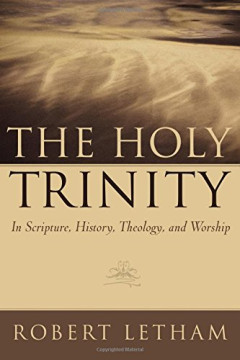
The Holy Trinity: In Scripture, History, Theology, and Worship
In "The Holy Trinity" Robert Letham helps to redress this shortcoming. He offers a well-researched volume about "the One who is utterly transcendent and incomprehensible." After examining the doctrine's biblical foundations, the author traces its historical development through the twentieth century, and engages four critical issues : the Trinity and (1) the incarnation, (2) worship and prayer…
- Edition
- -
- ISBN/ISSN
- 9780875520001 / 0875520006
- Collation
- Softcover; 567 hlm.; 15 x 22.7 cm
- Series Title
- -
- Call Number
- 231.044
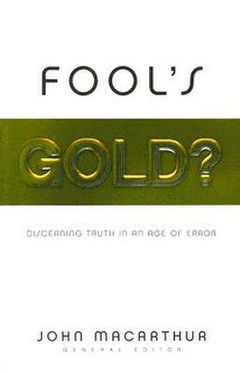
Fool's Gold?: Discerning Truth in an Age of Error
"Eureka!" In an age of open-mindedness, many believers accept too much with too little discernment, resulting in great confusion and compromise. But God's Word makes it clear that not everything that glitters is gold. False teaching is at every turn, and the temptation to embrace it is great. As God's people we are called to sift through the overwhelming number of traditions and trends and use …
- Edition
- 1
- ISBN/ISSN
- 158134726X
- Collation
- Softcover; 224 hlm.; 14 x 22.7 cm
- Series Title
- -
- Call Number
- 230.04624

Resurrection & Eschatology: Theology in Service of the Church: Essays in Hono…
Richard B. Gaffin, Jr. stands tall among present-day theologians as one who has given his life to the study of Scripture and to its expression in the church. His influence spans five decades and is felt through his tireless service both at Westminster Theological Seminary and in the Orthodox Presbyterian Church. This festschrift, written in Gaffin's honor, features essays by twenty-three pas…
- Edition
- -
- ISBN/ISSN
- 978-1-59638-126-1
- Collation
- 605 hlm.; Hard Cover 15,7 x 23,5 cm
- Series Title
- -
- Call Number
- 230.51
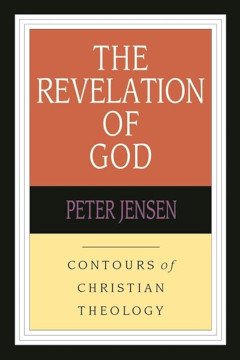
The Revelation of God: Contours of Christian Theology
"~In modern times the Christian faith's claim to possess a unique revelation of God has faced numerous challenges. A central issue has been the role of the Bible. While some have continued to defend the view that the Bible, inspired by God, is God's self-revelation in a direct way, others, have argued that God's self-revelation is to be found primarily in divine action or in the person of Jesus…
- Edition
- -
- ISBN/ISSN
- 9780830815388
- Collation
- Softcover, 304 hlm, 15x23cm
- Series Title
- -
- Call Number
- 231.74
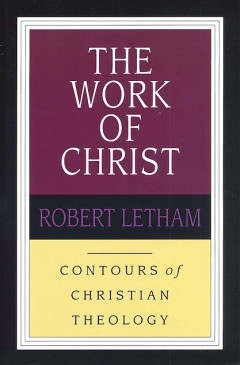
The Work of Christ: Contours of Christian Theology
In The Work of Christ Robert Letham shapes his discussion around the threefold office of Christ as prophet, priest and king. Within this framework he explores the issues of Christ and the Word of God, the nature and theories of the atonement, and the cosmic and corporate dimensions of the mediatorial kingship of Christ. At crucial points the viewpoints of significant Christian thinkers, from th…
- Edition
- -
- ISBN/ISSN
- 9780830815326
- Collation
- Softcover, 246 hlm, 15x23cm
- Series Title
- -
- Call Number
- 232.8
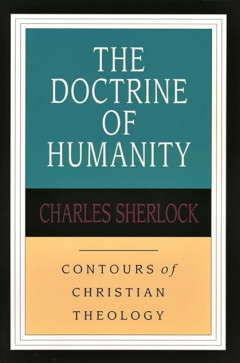
The Doctrine of Humanity: Contours of Christian Theology
"~At the end of the twentieth century the forces of race, gender, ethnicity, culture, social status, life-style and sexual preference threaten to disassemble any notion of universal ""human nature"" or ""human condition."" In light of this historical moment, the Christian doctrine of human nature is ripe for rethinking and reformulation.Charles Sherlock sees this theological task as demanding a…
- Edition
- -
- ISBN/ISSN
- 9780830815357
- Collation
- Softcover, 303 hlm, 15x23cm
- Series Title
- -
- Call Number
- 233.5
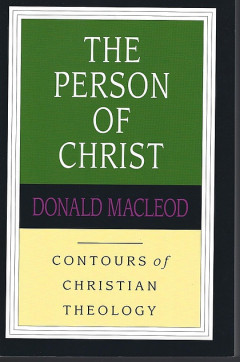
The Person of Christ: Contours of Christian Theology
Throughout the history of the church the doctrine of the person of Christ has been a centerpiece of theological reflection. In The Person of Christ Donald Macleod rearticulates this multifaceted doctrine. He begins with the New Testament and recent attempts to understand its Christology. Macleod then turns his attention to Christ in the history of Christian theology, examining the principal iss…
- Edition
- -
- ISBN/ISSN
- 9780830815371
- Collation
- Softcover, 303 hlm, 15x23cm
- Series Title
- -
- Call Number
- 232.8
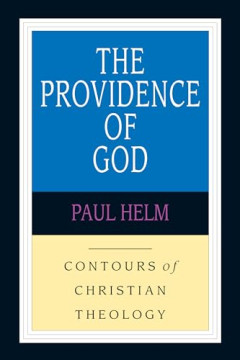
The Providence of God: Contours of Christian Theology
In this concise and accessible introduction, Paul Helm outlines for students and interested readers the doctrine of divine providence. Unlike many doctrinal treatments, his approach is not historically oriented. Instead Helm focuses on the underlying metaphysical and moral aspects of God's providence, paying particular attention to the ideas of divine control, providence and evil, and the role …
- Edition
- -
- ISBN/ISSN
- 9780830815333
- Collation
- Softcover, 246 hlm, 15x23cm
- Series Title
- -
- Call Number
- 231.5
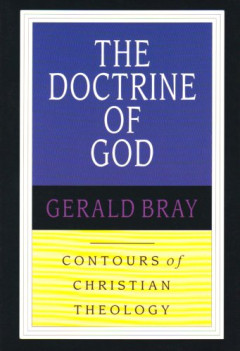
The Doctrine of God: Contours of Christian Theology
What is theology? What is the nature of God? How should we think about the relationships among the persons of the Trinity? In a carefully reasoned style Gerald Bray distills the essence of these questions and introduces readers to a theological understanding of the personal, trinitarian existence of God. Engaging classical and contemporary theology along the way, Bray also leads us into convers…
- Edition
- -
- ISBN/ISSN
- 9780830815319
- Collation
- Softcover, 281 hlm, 15x23cm
- Series Title
- -
- Call Number
- 231
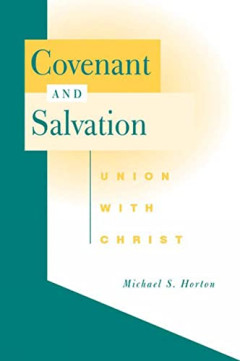
Covenant and Salvation: Union with Christ
Following Covenant and Eschatology and Lord and Servant, this concluding volume of a four-part series examines Christian salvation from the perspective of covenant theology. In Covenant and Salvation, Michael Horton surveys law and gospel, union with Christ, and justification and theosis, conversing with both classical and contemporary viewpoints.
- Edition
- -
- ISBN/ISSN
- 9780664231637
- Collation
- Softcover; 324 hlm.; 15 x 23 cm
- Series Title
- -
- Call Number
- 234
 Computer Science, Information & General Works
Computer Science, Information & General Works  Philosophy & Psychology
Philosophy & Psychology  Religion
Religion  Social Sciences
Social Sciences  Language
Language  Pure Science
Pure Science  Applied Sciences
Applied Sciences  Art & Recreation
Art & Recreation  Literature
Literature  History & Geography
History & Geography